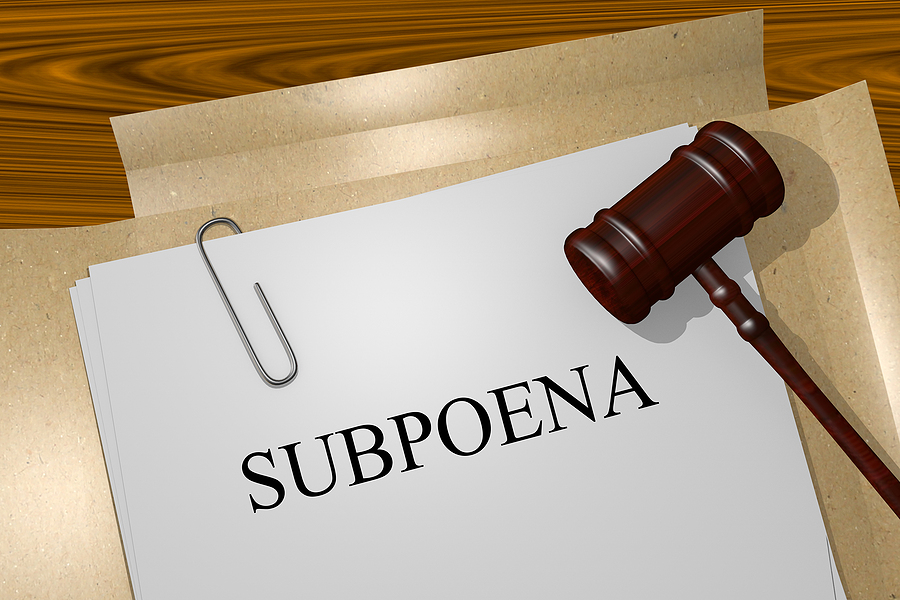People don’t get divorced because they (or their spouse) were an angel. People usually get divorced after being subjected to some very reprehensible behavior. Does that behavior allow for punitive damages in the subsequent Illinois divorce?
Punitive damages are “damages awarded in addition to actual damages when the defendant acted with recklessness, malice, or deceit; specifically, damages assessed by way of penalizing the wrongdoer or making an example to others” Black’s Law Dictionary (11th ed. 2019)
For the most part, punitive damages are not allowed in an Illinois divorce.
Assets and Support Are Awarded Without Regard To Bad Behavior
Illinois divorce courts “shall divide the marital property without regard to marital misconduct in just proportions” 750 ILCS 5/503(d). (emphasis mine)
For maintenance (formerly known as alimony), “the court may grant a maintenance award for either spouse in amounts and for periods of time as the court deems just, without regard to marital misconduct, and the maintenance may be paid from the income or property of the other spouse.” 750 ILCS 5/504(a)(emphasis mine)
In Illinois, child support is a mathematical calculation that does not account for either parent’s behavior beyond their actual or imputed earnings. Child support is “based upon the parents’ combined net income estimated to have been allocated for the support of the child if the parents and child were living in an intact household.” 750 ILCS 5/501(a)(1)(D)
Bad behavior will not even impact parenting time so long as the bad behavior happened away from the child. “In allocating parenting time, the court shall not consider conduct of a parent that does not affect that parent’s relationship to the child.” 750 ILCS 5/602.7(c)
Case law specifically admonishes courts to not punish children for the poor behavior of their parents.
There is a “well-established principle under both the Illinois [Marriage And Dissolution Of Marriage Act] that the children’s interests must take precedence over ruffled feelings of parents and even, on occasion, the authority of the court” In re Marriage of Weinstein, 408 NE 2d 952 – Ill: Appellate Court, 1st Dist. 1980f
You cannot even ask for monetary compensation for an instance of domestic violence.
“An action for dissolution of marriage also provides no compensatory relief for domestic abuse” Feltmeier v. Feltmeier, 798 NE 2d 75 – Ill: Supreme Court 2003
Still there are some avenues to make yourself whole, financially, during and after an Illinois divorce.
Dissipation Claims or A Contribution Claims As A Substitute For Punitive Damages In An Illinois Divorce
Bad behavior rarely stands on its own. Bad behavior usually has financial consequences. Those financial consequences can be considered by an Illinois divorce court through either a dissipation claim or a contribution claim.
“Dissipation is defined as the use of marital property for one spouse’s sole benefit for a purpose unrelated to the marriage at a time when the marriage is undergoing an irreconcilable breakdown.” In re Marriage of Tietz, 605 NE 2d 670 – Ill: Appellate Court, 4th Dist. 1992
If some asset was used exclusively for the benefit of the bad-behaving spouse (including destroying something physical or something non-physical like an opportunity), the court can consider that when it awards the marital assets and debts.
An Illinois divorce court “shall divide the marital property without regard to marital misconduct in just proportions considering all relevant factors, including:
…
the dissipation by each party of the marital property” 750 ILCS 5/503(d)(2)
Likewise, a party’s actions which reduced the value of marital property may be considered by an Illinois court as a way of punishing them for those actions (in direct proportion to the actual diminution of value caused by their actions.)
An Illinois divorce court “shall divide the marital property without regard to marital misconduct in just proportions considering all relevant factors, including:
(1) each party’s contribution to the acquisition, preservation, or increase or decrease in value of the marital or non-marital property” 750 ILCS 5/503(d)(1)
This is about as good as it gets for punitive damages in an Illinois divorce case.
This is cold comfort for court matters brought after the marital debts and assets have been divided. At that point, the only punitive damages are attorney’s fees.
Attorney’s Fees As Punitive Damages In An Illinois Divorce Case
After orders are entered to prevent bad behavior, any bad behavior that defies an entered order shall be punished with a mandatory order to pay attorney’s fees related to enforcing that order.
“In every proceeding for the enforcement of an order or judgment when the court finds that the failure to comply with the order or judgment was without compelling cause or justification, the court shall order the party against whom the proceeding is brought to pay promptly the costs and reasonable attorney’s fees of the prevailing party.” 750 ILCS 5/508(b)(emphasis mine)
Likewise, any litigation that is brought in bad faith will be punished by an order to pay all attorney’s fees related to that litigation.
“If at any time a court finds that a hearing under this Act was precipitated or conducted for any improper purpose, the court shall allocate fees and costs of all parties for the hearing to the party or counsel found to have acted improperly. Improper purposes include, but are not limited to, harassment, unnecessary delay, or other acts needlessly increasing the cost of litigation.” 750 ILCS 5/508(b)(emphasis mine)
While the attorneys will get paid, the underlying heartache caused by the bad actor cannot be compensated for unless you file a separate claim within the divorce for those bad actions.
Other Tort Claims That Provide Damages In An Illinois Divorce
The Illinois Rights of Married Persons Act contemplates retrieving punitive damages through other claims beyond divorce.
“A married person may, in all cases, sue and be sued without joining his or her spouse as if unmarried. A husband or wife may sue the other for a tort committed during the marriage.” 750 ILCS 65/1
A tort is “a private or civil wrong or injury for which a court will provide a remedy in the form of an action for damages” Black’s Law Dictionary (10th ed. 2014)
The most common tort associated with divorce is “Intentional Infliction of Emotional Distress”
Intentional Infliction of Emotional Distress is“a tort of intentionally or recklessly causing another person severe emotional distress through one’s extreme or outrageous acts.” Black’s Law Dictionary (11th ed. 2019)
Damages are allowed for the harm caused by an intentional infliction of emotional distress that the Illinois Marriage and Dissolution of Marriage Act cannot recompensate for. Those damages are not formulaic.
There is no“scientific standard for measuring [emotional] damages” Knierim v. Izzo, 174 NE 2d 157 – Ill: Supreme Court 1961
“[E]motional distress damages may be established through a plaintiff’s own testimony, and expert testimony is not required.” Doe v. Fritch, 239 NE 3d 1259 – Ill: Appellate Court, 4th Dist. 2024
Beyond extreme behavior from past torts, parties to an Illinois divorce can bring up bad behavior during the course of the divorce for possible punishment by the courts.
A Divorce Litigant Can Be Fined For Bad Behavior During The Divorce
When outrageous behavior happens after the divorce is filed, the divorce court has the capacity to fine the bad actor via a finding of contempt.
“[T]he court’s inherent power provides a trial judge with ample authority under appropriate circumstances to impose sanctions such as the imposition of fines” Sander v. Dow Chemical Co., 252 Ill. App. 3d 403, 419 (1993)
“[C]ourts should not hesitate, where appropriate, to sanction—with significant fines—those attorneys who disregard court orders and rules” Clymore v. Hayden, 278 Ill. App. 3d 862, 870 (1996)
Courts are hesitant to fine wrongdoers because fines can indicate that the contempt is punishment for past actions and not coercion to prevent future bad actions. If the fine is mostly a punishment for bad actions, the contempt becomes criminal.
“Where the sanction imposed by a court for contempt is punitive, such as imprisonment for a definite term or a fine in a sum certain, the contempt is criminal in nature.” In re Marriage of Wilde, 490 NE 2d 95 – Ill: Appellate Court, 2nd Dist. 1986
Criminal contempt triggers “a formal hearing on the contempt charges and to all appropriate constitutional rights, including notice, reasonable opportunity to defend, assistance of counsel, a reasonable doubt standard of proof, and the privilege against self-incrimination.” In re Marriage of Wilde, 490 NE 2d 95 – Ill: Appellate Court, 2nd Dist. 1986
Judges are not going to want to create a circus of constitutional rights in an already rambunctious divorce. So, judges are going to say that any fine is for the purposes of coercion NOT punishment.
“[T]he test for determining whether contempt proceedings are criminal or civil in nature is the dominant purpose for which sanctions are imposed. Any incidental results or benefits of imposing the sanctions are of no consequence in making this determination. Thus, the fact that accrued daily fines for civil contempt are a punishment for past misconduct does not alter the fundamentally coercive nature of a sanction consisting of the daily accumulation of additional fines” In re Marriage of Betts, 558 NE 2d 404 – Ill: Appellate Court, 4th Dist. 1990
Even if the court collects the fine, the other party does not receive that money.
“In Illinois, it is well established that civil contempt is an affront to the authority of the court and not a private remedy, that any fine imposed pursuant to the contempt is payable to the public treasury and not a plaintiff, and that a plaintiff may not recover compensatory damages in a civil contempt proceeding… Because a sanction in a civil contempt proceeding is strictly coercive, the court is without the authority to compensate an aggrieved party for its damages.” Keuper v. BEECHEN, DILL & SPERLING BLDR., 704 NE 2d 915 – Ill: Appellate Court, 2nd Dist. 1998
“[C]ompensatory damages may not be awarded in a civil contempt proceeding.” In re Marriage of Morreale, 813 NE 2d 313 – Ill: Appellate Court, 2nd Dist. 2004
Illinois divorce law is focused on getting you apart form your spouse in a way that is just and fair to you both. This process rarely includes any kind of punitive compensation from one spouse to another.
To learn more about how to get money from your ex for other reasons, contact my Chicago, Illinois family law firm to speak with an experienced Illinois divorce attorney.






